At Blue Ventures we encourage all our team members to take advantage of as many opportunities for learning and career development as possible. Training courses and conferences can be transformative for early-career professionals, providing tools, new ideas, confidence and networks that can be used for decades. One of our newest members of the Madagascar team, Feno Hanitriniala, recently had the opportunity to travel to Canada to take part in a two-month long multidisciplinary training programme on ocean governance, including law, policy and management of the seas.
This was a new venture for Feno, her first trip outside of Madagascar and her first foray into this subject. Now that she’s back in Andavadoaka we caught up with her to find out how it went.
Can you tell us a bit about yourself, and why you wanted to go to Canada for this course?
Blue Ventures run a School Scholarship Scheme which supports young people in southwest Madagascar with access to the educational opportunities they need to realise their full potential and advance marine conservation within their communities. You can support this work from as little as £3 per month.
Find out more here.I have been working within Blue Ventures’ Education and Outreach Programme in Velondriake in southwest Madagascar for ten months now.
My job involves administering scholarship fees for scholars and planning some of the activities by creating curriculums and lessons. Most of the time it involves encouraging and mentoring them in all aspects of life, not only in education.
I do not have an academic background in marine affairs and so I wanted to attend the training to widen my knowledge on marine management at international level. I also wanted to see where Blue Ventures fit in terms of Ocean Governance. Also, as I’m in charge of creating curriculums and lessons for environmental education, including leading the Girls’ club, I wanted to understand more about the ocean in order to create a handbook for the club and bring new knowledge to these extra-curricular lessons and activities.
Attending this course was an immense opportunity for me to help my fellow Malagasy citizens, to encourage young people to contribute to the protection and management of marine resources in the area and to play a part in the development of Madagascar in the future. My interest and passion to do this increased during my time in Canada.
Since its creation in 1981, the International Ocean Institute (IOI) has been providing a summer training program on Ocean Governance: Law, Policy and Management at Dalhousie University. The training is very comprehensive with speakers from many different fields of knowledge all connected by the ocean. The modules are very diverse, ranging from ocean science to renewable energy, but underpinning all of these topics is the aim to get a broad understanding of the rules and regulations relating to the ocean. The teaching was not all formal and in addition to the lectures, participants are also given the opportunity to go on several field trips.
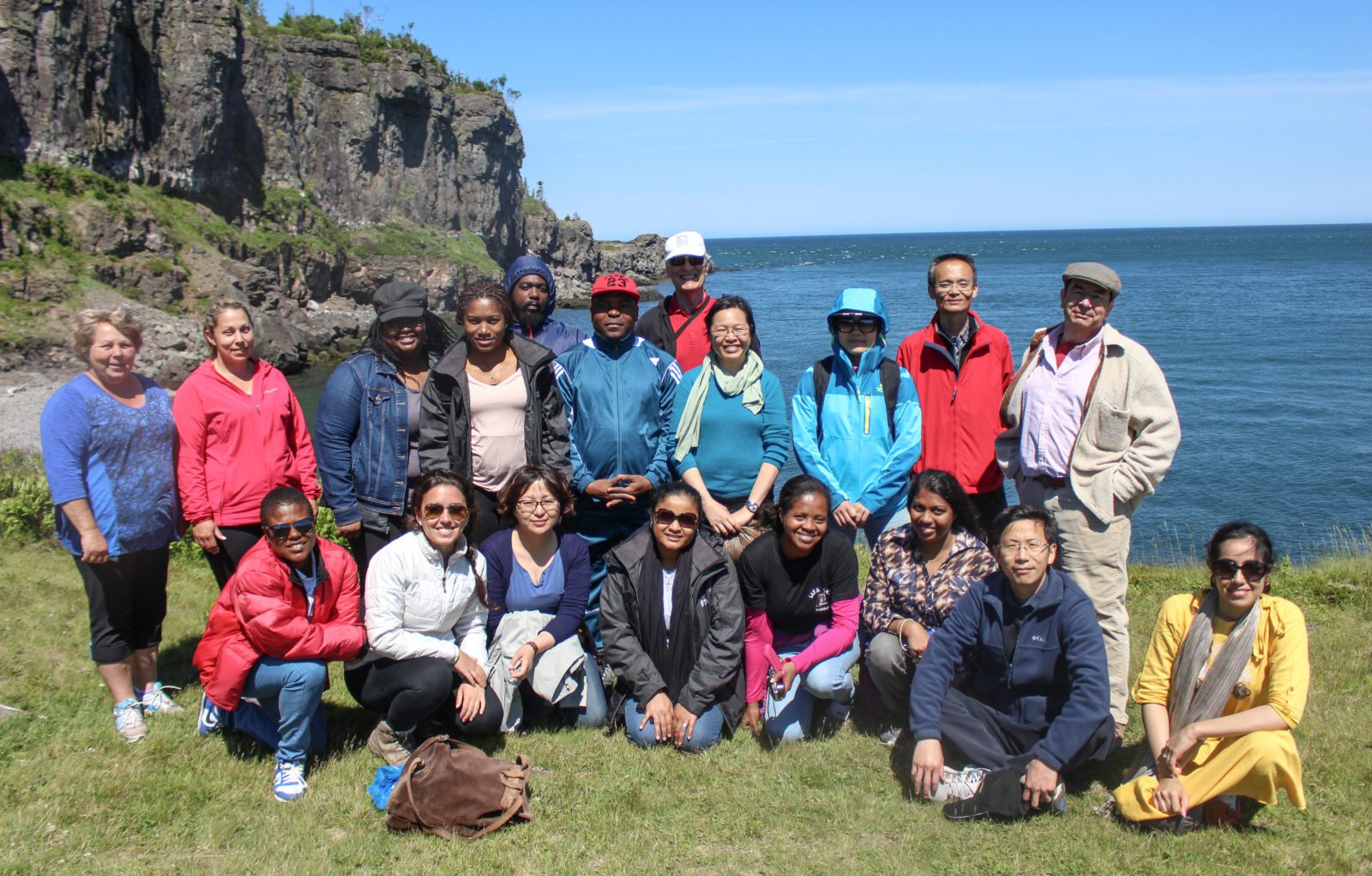
A group picture from one of the IOI field trips. Feno has the pink sleeves in the bottom row.
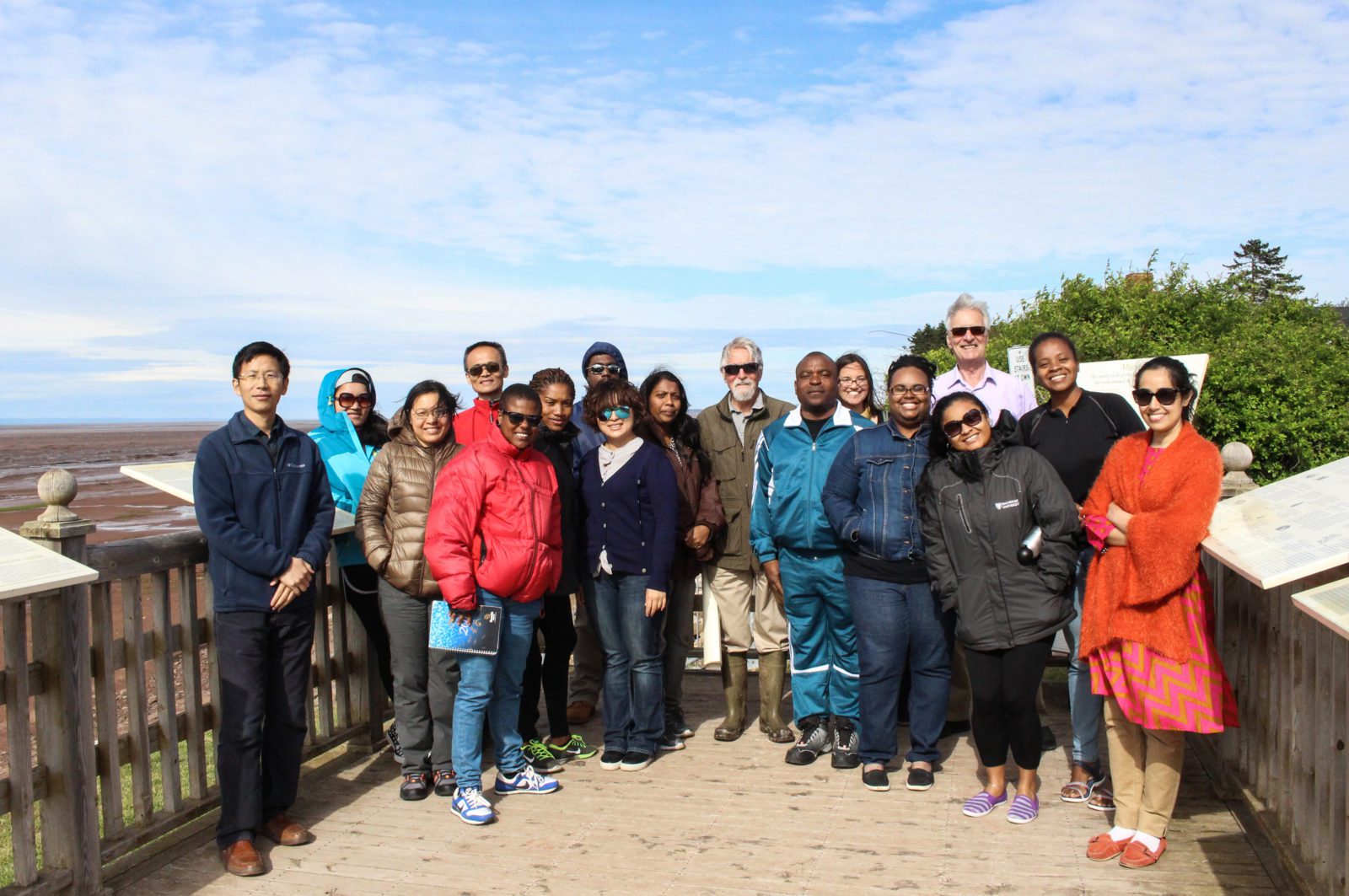
Feno is second from the right in this group picture from the Evangeline Beach field trip.
What were the top three things you learned during the course?
As it’s such a varied course and I found it all fascinating, it’s very hard to pick just three! But I will try…
The most important thing for me was to understand that ocean governance is a multifaceted study and that almost everything in the oceans is connected. For instance, we know that a single species in the ocean can be affected by international shipping routes. This international complexity was new to me – previously in thinking about governance within my work with Blue Ventures, I’d been focused on local management and governance – including fisheries and aquaculture management. Now, I can see many links from this to big international issues.
Given my passion for education, it’s perhaps not surprising that my conviction in the importance of educating young people, local communities, businesses and decision makers about the ocean was reinforced during this programme. We spent time thinking about the different forms this can take depending on the target audience, for example: the general public reading newspapers, students listening to teachers or a simple informal discussion with the community.
Some novel education methods really helped us get grips with complex topics during the programme. I particularly enjoyed a simulation exercise where we were given the role of a senior advisor from a ministry in the Government of Antillia, an imaginary state located somewhere in the globe. The country did not have an ocean policy and we had to write one for it. We were also assigned the duty of presenting the policy to the Government and persuading them of the benefits of these measures and regulations. From this exercise and some of the lectures provided during the training, I got a full understanding of how policies are developed, how they should be integrated and how coordination between agencies is vital for an effective result.
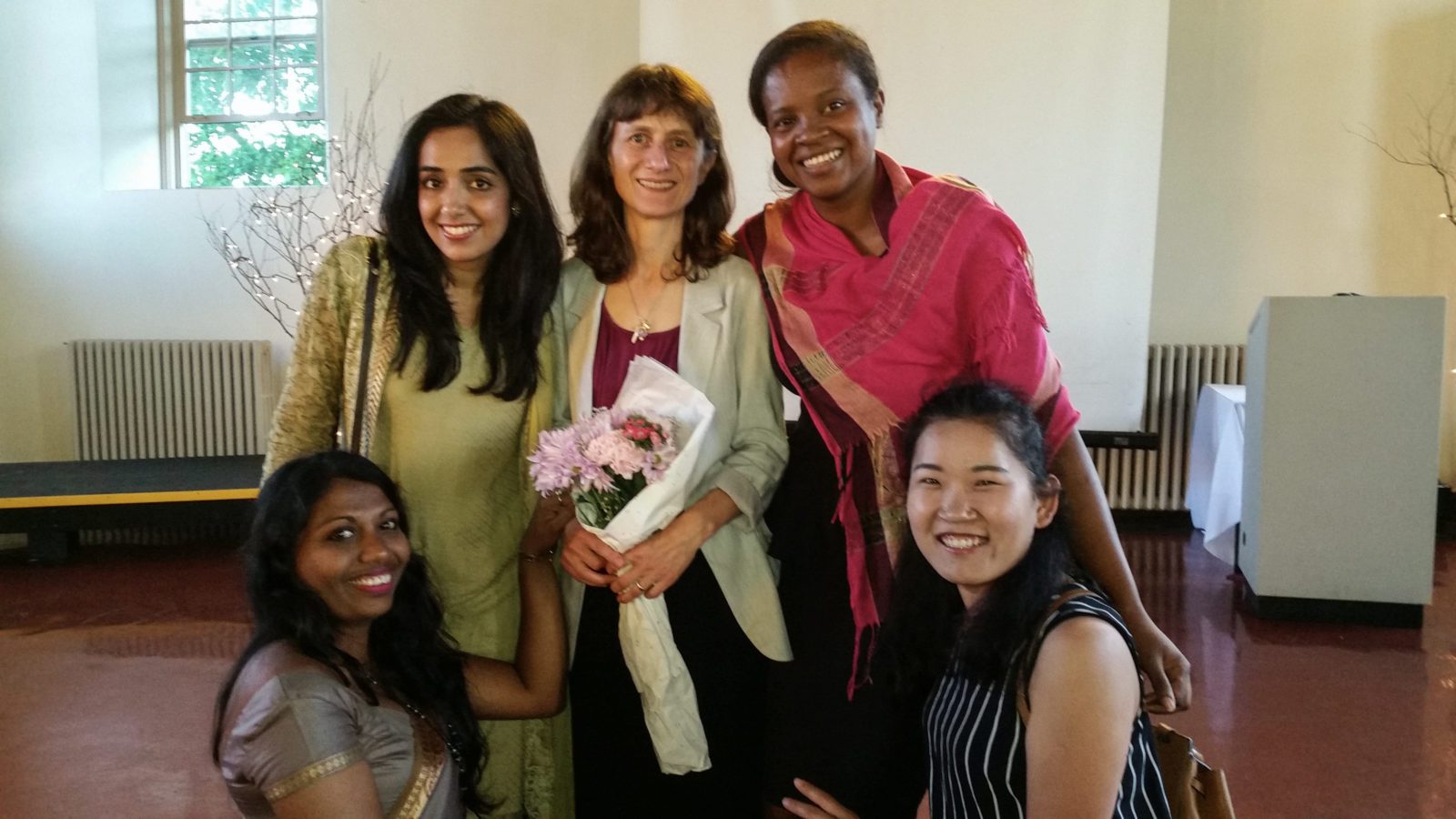
Feno is top right in this picture taken at the closing ceremony of the ocean governance course.
How will you apply these lessons to your work?
Through this experience I’ve not only gained new knowledge, but also tools and skills that I will be able to draw on during my whole career, and that I hope will make big contributions to Blue Ventures’ mission.
In the short term, I would like to translate the knowledge I received from the training to young people in the Velondriake area through my work in the education programme. I believe in the potential of the youth in Madagascar and especially in the south west. During the training I often said that Madagascar has a very young population that, if given the appropriate training, can be drivers of change in terms of development and especially in terms of ocean and coastal management.
Our mission within Blue Ventures to rebuild tropical fisheries with coastal communities is perfectly in line with the training on Ocean Governance with International Ocean Institute. I discovered that Blue Ventures plays a very important role in the ocean and coastal management in the southwest of Madagascar where it operates, whilst at the same time contributing to the health of the ocean. I hope also to be able to use my new knowledge to contribute to Blue Ventures’ wider programmes both in southwest Madagascar and beyond.
So what is next for you now that you’re back, armed with all this knowledge?
It is hard to keep quiet when you know things!
Before the training my main interest was education and it is still the same now. This is mostly because I understand, through personal experience, how important education is for a developing country like Madagascar. After the training, I must say that for coastal communities, ocean education should be a priority and I am happy that Blue Ventures has already been doing this for years now. Another interest which is born from this training is ocean governance itself, even as complex as it is. I discovered the issues developing countries are facing in terms of ocean and coastal management both at a national and international level.
As my final words, I will say that I love my country and I will be pleased to contribute to its development including improving any aspects of ocean governance.
Blue Ventures would like to thank WIOMSA and the Earthwatch Shulman Award for supporting Feno’s participation at the summer training program on Ocean Governance: Law, Policy and Management at Dalhousie University.



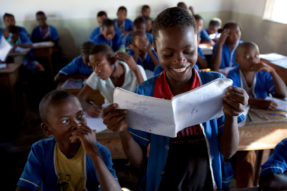
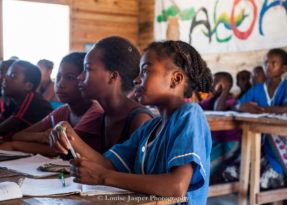
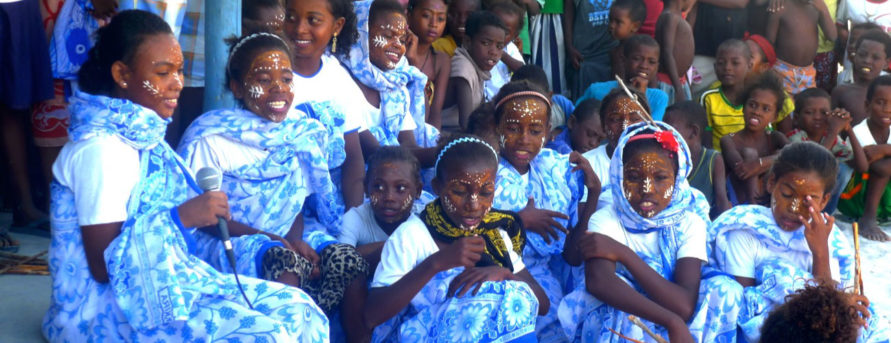
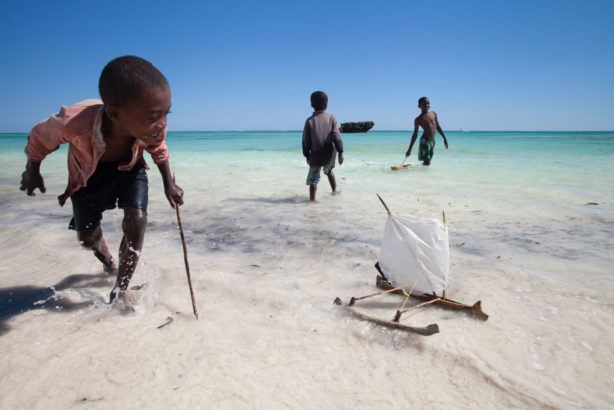
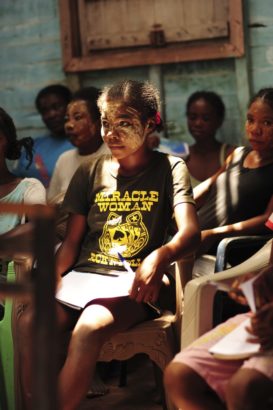
Is I joined this study program